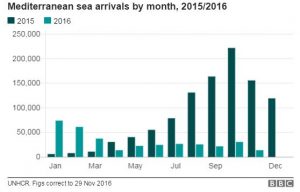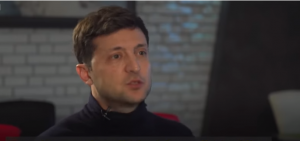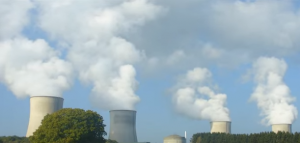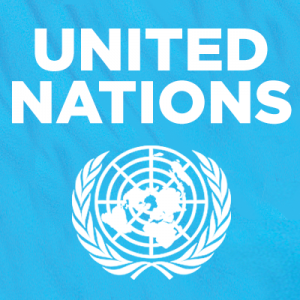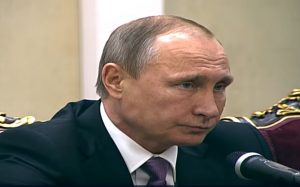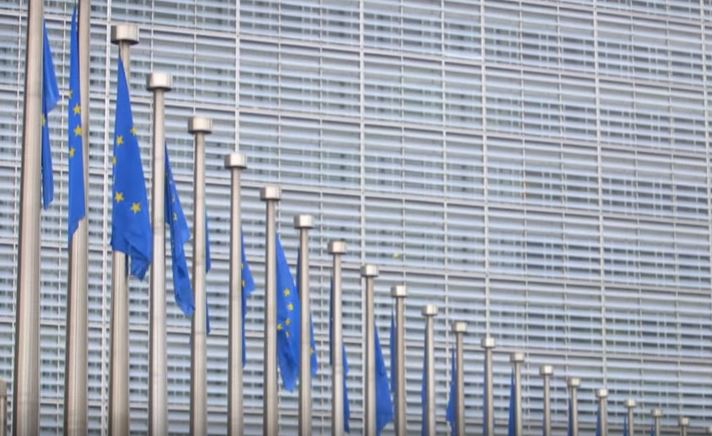
BBC: EU leaders meeting in Brussels have agreed to extend economic sanctions against Russia for six more months.
Earlier France and Germany complained that the Minsk peace deal for Ukraine was still not being fulfilled.
Russia’s military interventions – first in Ukraine, then in Syria – are high on the EU summit agenda.
But Italy and Slovakia want an easing of sanctions that have cost EU exporters billions of euros.
The Brussels summit is focusing on the crises in Europe’s neighbourhood – the destruction of Aleppo and exodus of Syrian refugees, migrant pressure from Africa and Ukraine’s conflict with Russia.
Russia’s annexation of Ukraine’s Crimea region in 2014 triggered the first round of sanctions.
They have been ratcheted up, targeting Russian arms exporters, banks and individuals – many of them close to President Vladimir Putin – blamed for the pro-Russian insurgency in Ukraine.
But this summit will also be remembered for its new language on ties with Ukraine – setting limits to EU support.
The far-reaching EU-Ukraine Association Agreement was stalled by a Dutch referendum in April, when Dutch voters rejected it.
So the leaders addressed Dutch anxieties with a new, legally binding EU text. “The Agreement does not confer on Ukraine the status of a candidate country for accession to the Union, nor does it constitute a commitment to confer such status to Ukraine in the future,” it said.
The EU will not offer Ukrainians the right to reside and work in the EU, nor offer EU military assistance. Any such help is a matter for individual governments.
Joint defence
After a late lunch the leaders moved on to EU defence and security co-operation. They want to strengthen EU-Nato links in key areas, including “hybrid threats” – such as cyber-attacks – and maritime security.
Poland and the Baltic members – Estonia, Latvia and Lithuania – have not only urged the EU to support Ukraine, but also voiced alarm over Russia’s heightened military presence in the Baltic.
Russia is accused of “provocative” air patrols and missile deployments in the strategic Kaliningrad region.
The EU Commission has put forward a “European Defence Action Plan”, envisaging much more pooling of EU defence capabilities.
The draft summit conclusions say this defence roadmap will be developed speedily in 2017.
The Commission says European defence is too fragmented and wasteful. It criticises the duplication – the EU has 19 types of armoured infantry fighting vehicle, compared with one in the US.
UK warning
The UK has warned that joint EU military efforts must not duplicate Nato, and it is strongly opposed to the idea of a European army. Such a proposal is not on the table, but the EU is discussing closer military co-operation, ahead of the UK’s Brexit negotiations.
An added worry for the EU is US President-elect Donald Trump’s warning that Europe must spend more on defence. Some EU countries fall short of Nato targets for defence spending.
The EU Commission says “the EU’s security situation has deteriorated significantly”.
“We are facing multiple crises – there are fires in every corner, and not just in Europe’s corners,” EU Commission President Jean-Claude Juncker told German ZDF TV.
One such corner is Turkey, struggling with 2.7m Syrian refugees – far more than in any EU country.
The EU sees its controversial March deal with Turkey as a model for similar deals in Africa.
Since March the numbers of migrants coming ashore in Greece has fallen dramatically, but Turkey accuses the EU of blocking its EU ambitions and failing to meet funding pledges.
Meanwhile, Italy says record numbers of African migrants have reached its shores this year. Nigeria and Eritrea are the top countries of origin. Dire poverty drives many towards Europe.
The suffering of Syrian civilians in devastated Aleppo overshadowed the one-day summit.
“Europe must make its voice heard,” French President Francois Hollande said, condemning the bombardment by Syrian government forces and Russian warplanes.
As the leaders met, a bus convoy began taking desperate civilians to safety, out of the city’s besieged rebel-held area.
EU foreign affairs chief Federica Mogherini called for “a true political transition in Damascus”. She said it must be “inclusive… it cannot be built on the ruins of Aleppo or other cities”.

